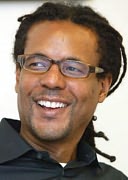- Shopping Bag ( 0 items )
From Barnes & Noble
It was an offer that a budding young novelist just couldn't refuse. As part of a Grantland magazine assignment, Colson Whitehead (Zone One; Sag Harbor) agreed to participate in the week-long 2011 World Series of Poker in Las Vegas. Unfortunately, he had little experience in the game and, as he recounts in this funny recap, much of his hasty preparation for the tournament was more entertaining than ultimately instructive. Nevertheless, he approaches the game with a combination of fascination and fatalism that even seasoned players will be able to appreciate. The Noble Hustle is a well-crafted jaunt into a shared obsession.





Overview
The Noble Hustle is Pulitzer finalist Colson Whitehead’s hilarious memoir of his search for meaning at high stakes poker tables, which the author describes as “Eat, Pray, Love for depressed shut-ins.”
On one level, The Noble Hustle is a familiar species of participatory journalism—a longtime neighborhood poker player, Whitehead was given a $10,000 stake and an assignment from the online online magazine Grantland to see how far he could get in the World Series of Poker. But since...